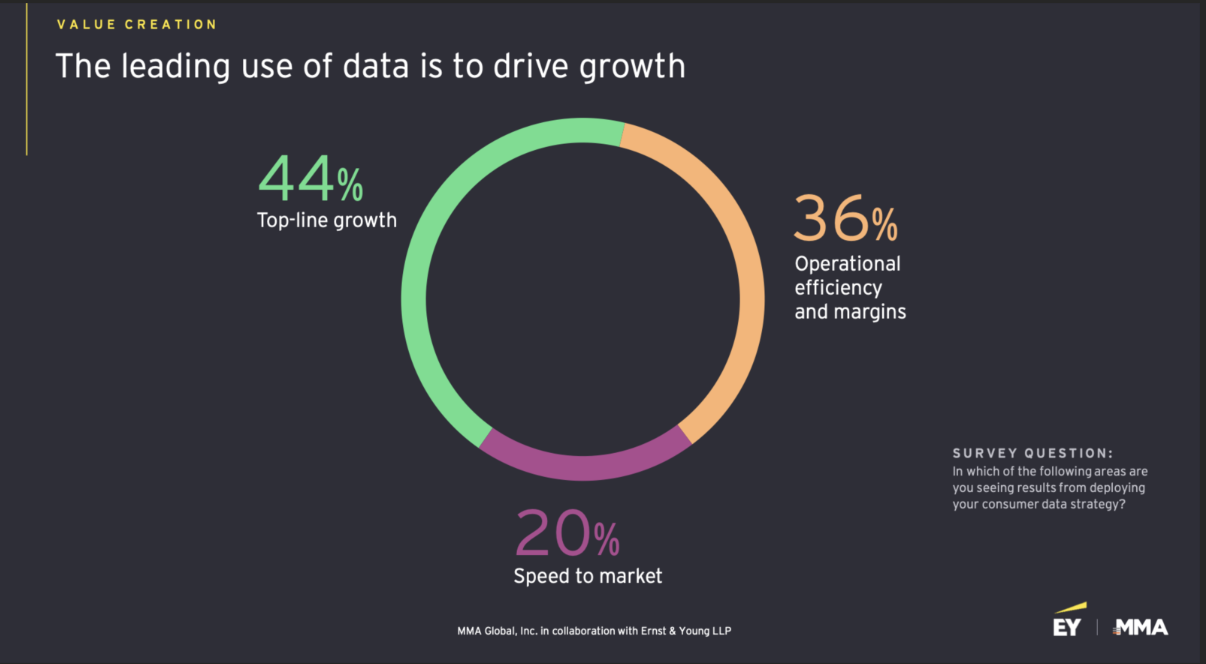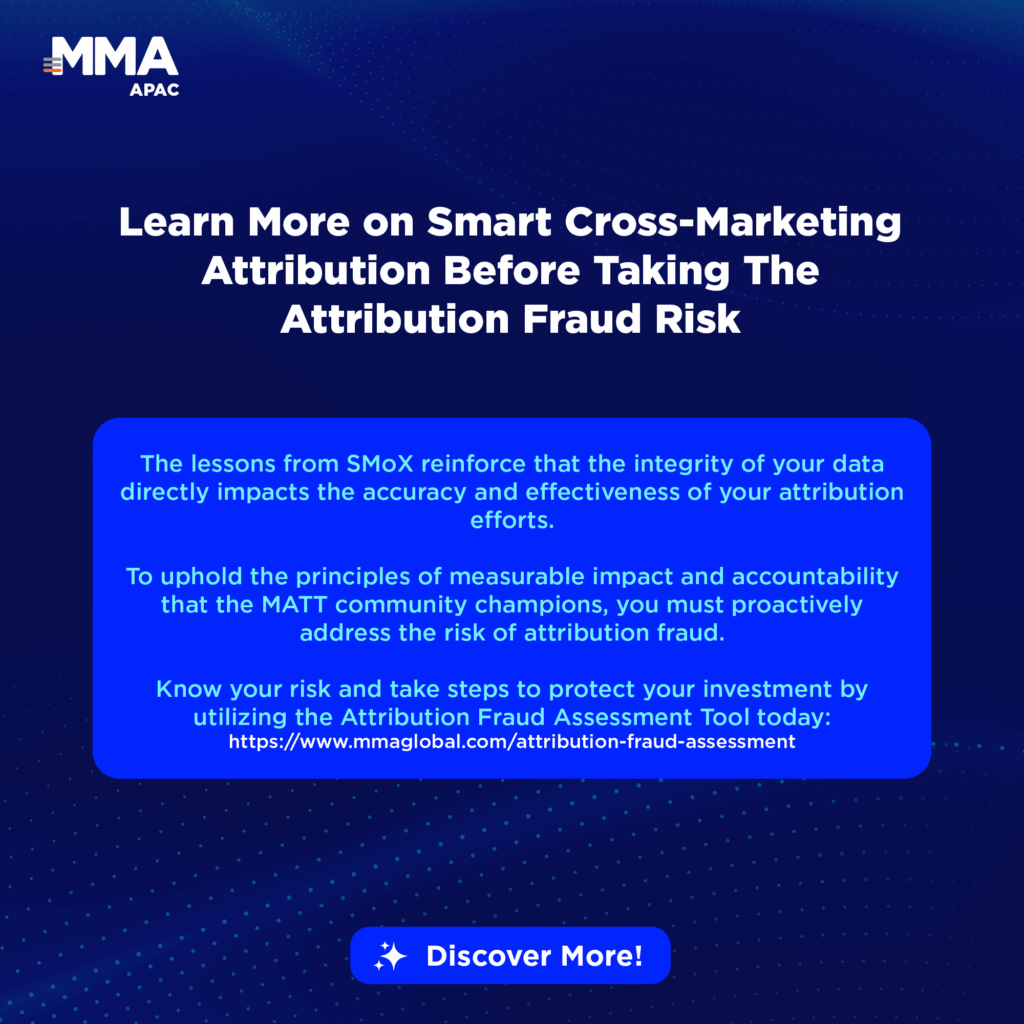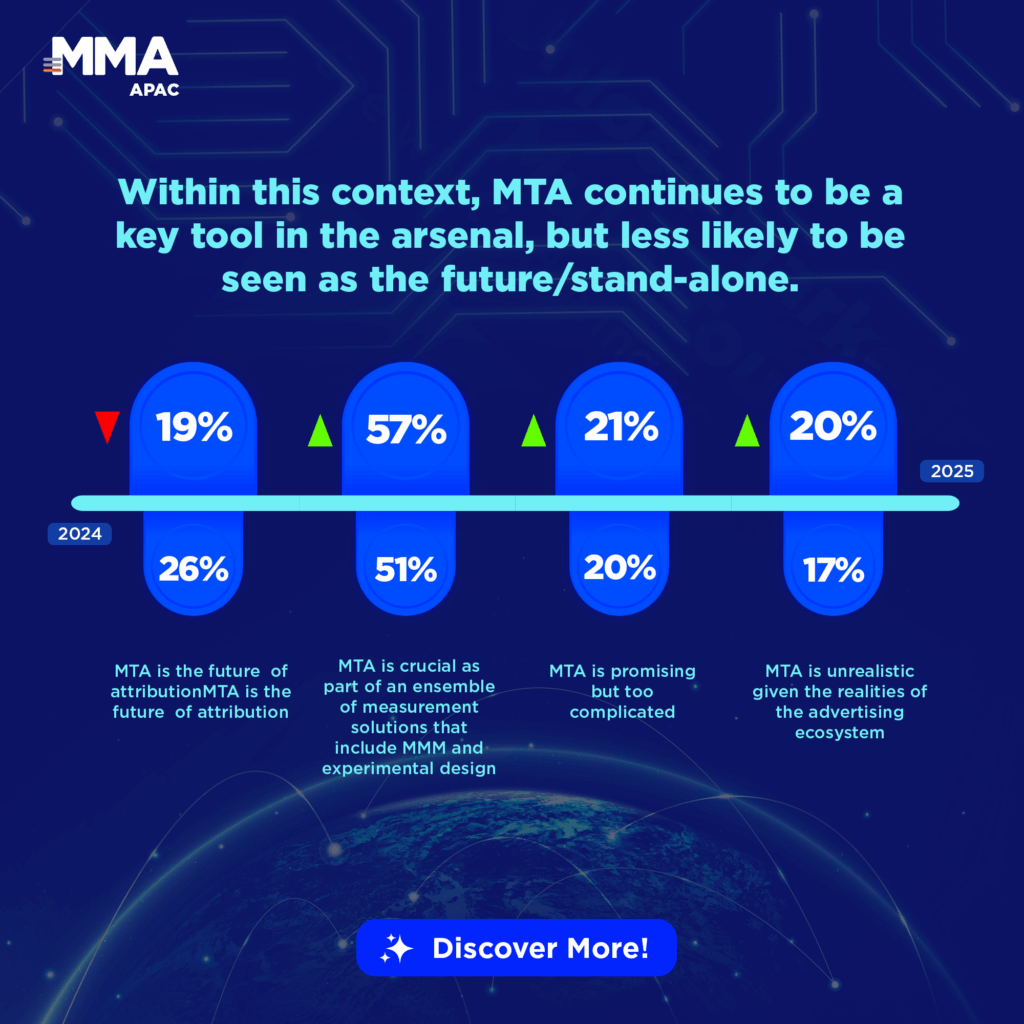

Source: https://www.mmaglobal.com/files/documents/2023_mma_data_maturity_webinar_final59.pdf
Driving Revenue and Operational Efficiency
For Data Leaders, the primary objective in using consumer data is to drive top-line growth (revenue). This is consistently the leading focus, followed closely by efforts to enhance operational efficiency and margins. Unlike other marketers who might focus solely on short-term gains like Return on Ad Spend (ROAS), Data Leaders exhibit a longer-term growth mindset, prioritizing brand health and overall Return on Investment (ROI). They understand that data is the “fuel of an AI future” and that accelerating data maturity is crucial.
Embracing Optimization and Innovation
Data Leaders don’t stop at common marketing and customer experience (CX) applications; they actively lean into using data for optimization and innovation. This reflects their progression from tactical to more strategic data focus areas. Their strategic advantage comes from a tight alignment between their data strategies and overarching business objectives, which is less common among other marketers.
High-Impact Use Cases: A Data Leader’s Playbook
Data Leaders excel in applying consumer data across several high-impact use cases, often deriving greater complexity and value from them compared to “most people”.
Here’s a breakdown of their key areas of focus:
- Audience Strategy and Insights:
- This area consistently emerges as where marketers perceive the most value from data application.
- Data Leaders are more likely to derive significant value from audience strategy and insights (74% for leaders vs. 64% for most people).
- They specifically leverage consumer data to identify high-value audiences and extract greater value from their segmentation efforts.
- Measurement and Optimization:
- Another key area for value perception among marketers.
- Data Leaders show a slightly higher rate of value extraction in this area (59% for leaders vs. 58% for most people).
- Crucially, Data Leaders invest more heavily in attribution modeling to ultimately impact purchase behavior across the customer journey. This contrasts with the general marketer population, where challenges persist in model validation and alignment.
- Campaign Activation:
- Data Leaders demonstrate significantly higher value from campaign activation (64% for leaders vs. 35% for most people).
- They are more inclined to invest in targeting augmentation, such as lookalike modeling, rather than simply relying on general media partners.
- Personalized Omnichannel Experience:
- While many organizations struggle to extract full value from omnichannel data, Data Leaders show a strong focus on personalized omnichannel experiences (68% for leaders vs. 69% for most people, indicating high overall importance).
- They prioritize journey orchestration and lean more towards recommendations as a key personalization driver, rather than over-relying on email marketing alone. This capability is part of their leapfrogged advancements.
- Product Strategy and Innovation:
- Data Leaders derive more value from product strategy and innovation (35% for leaders vs. 31% for most people).
- Uniquely, Data Leaders utilize data to develop new business models, moving beyond just identifying channel fit or white space for existing products. This showcases their strategic foresight and ability to drive innovation through data.
In summary, Data Leaders leverage data to manage growth and risk. They cultivate proprietary data assets to build competitive advantage, invest in insight orchestration across the enterprise, improve data quality, amplify data governance capabilities, and connect business and data/technology strategies end-to-end at scale. This comprehensive approach allows them to unlock the transformative power of data for sustained business growth.
Take the assessment now: https://www.mmaglobal.com/data-maturity-assessment
Sign up for MMA Global Thought Leadership Programs here.



















